- Home
- Franklin W. Dixon
Line of Fire
Line of Fire Read online
Hardy Boys Casefiles - 16
Line of Fire
By
Franklin W. Dixon
Chapter 1
"You've got the wrong guy!" Joe Hardy raised his hands. More than two dozen expectant faces had turned to watch him as he walked in the door. "Save all the shouting until Denny, the real birthday boy, comes in."
Joe brushed back his unruly blond hair with one hand and grinned when he finally spotted his older brother. Naturally, Frank had chosen a quiet corner with a good view of the whole living room. He was talking with his girlfriend, Callie Shaw, their heads close together.
They both looked up as Joe worked his way toward them through the crowd. "This is going to be some bash," Joe said. "Denny Payson's a lucky guy. I hope you guys are taking notes. It would be nice to have a surprise party wheN I turn eighteen."
CalLie laughed. "It won't be much of a surprise if you're all ready for it."
"Besides," Frank added, "I thought you didn't like surprises anymore — not after last time." Their last case, Blood Relations, Had taken some nasty twists that had almost killed the Hardys.
"Well, I wouldn't mind a nice surprise, like Bonnie dancing only with me tonight." Joe nodded toward the middle of the room, where a gorgeous girl with long red hair sat. Four guys were falling all over themselves to get her sodas and snacks.
Frank's gin got bigger. "That wouldn't be a surprise. It would be a miracle."
The two brothers looked very different from each other. Joe, with his blond good looks and sparkling blue eyes, was a little shorter than Frank. He was the stockier of the two, with muscles stretching the chest of his sport shirt. Frank was leaner, with dark hair and eyes, and a deep tan from the summer sun.
Yet, as they both turned simultaneously and their eyes narrowed to watch someone approach, they seemed almost identical.
"Hi, Mrs. Payson," Joe said, recognizing the hostess of the party.
"Hello, boys." Elizabeth Payson put a hand oN each of their shoulders. "I'm so glad you could make it."'
Frank gave her a smile. "This party is the hot event of the summer. Every kid in town is buzzing about it."
"And trying to keep the secret from getting out to Denny," Joe added. "Where is our guest of honor?"
"Barbara was taking him out so we could get things ready," Mrs. Payson explained, smiling at a photo on the mantel.
It was a picture from the junior prom. Denny had his arm around his girlfriend, Barbara Lynch. Her petite frame and dark hair contrasted with the tall, redheaded Denny. He was grinning in the picture, and Frank, Joe, and Callie unconsciously smiled back.
"It's so good to see Denny smiling again," Mrs. Payson said. "And I wanted this to be a special birthday, to wipe out some of the other memories."
Five years before, just as Denny was turning thirteen, his father and three other men had died in the big fire at the Crowell Chemical plant. It had been the most tragic fire in Bayport history.
For the Paysons, it had been a complete disaster. Without Mr. Payson, they had no income, and stood to lose their house, their furniture, everything.
But the people of Bayport, led by Lucius Crowell, had rallied round. Crowell, the owner of the plant, had been the hero of the fire, risking his life to rescue the trapped men. Frank and Joe both remembered Crowell's picture in the newspaper, his face and clothes smudged with smoke as he led a worker out of the inferno.
Lucius Crowell had organized a drive to raise money for the widows and children. He set up a fund to save their homes and take care of the kids' educations. He'd been like an uncle to Denny ever since.
Mrs. Payson glanced at her watch. "I wonder what's keeping them? Barbara should have had him back by now."
"Um," said Joe, "I'm sure they'll be here soon. Oh, by the way, I've got a present for Denny. Are you putting them anyplace special?"
The kids followed Mrs. Payson to a table piled high with packages.
"It's a new book about target pistols," Joe went on. "I saw it the last time I was in the city and picked it up then." He smoothed one of the edges on the thick, sloppily wrapped package. "Hope he hasn't got it already."
Smiling, Mrs. Payson took the package. "I'm sure he'll love it."
"Well, I thought it would be right for Dead-Eye Denny." Joe used the nickname the Bayport Times had given Denny after he won his test pistol competition. Denny's superior abilities as a marksman were responsible for his getting his picture on sports pages all over the state.
Joe leaned forward as Mrs. Payson put his package on top of the pile. He'd just noticed : that one of the presents was unwrapped. At the front of the table, propped up in a special presentation case, was a customized target pistol.
"Hey, that's some gun." Joe whistled as he took in the clean lines of the automatic pistol. It was an old-fashioned Army Colt, but it had been reworked for competition. Most of the exposed metal was chrome plated. A specially weighted and vented muzzle shroud had been added for extra accuracy. There was even a special trigger.
And clamped to the top of the Colt was a hightech gunsight that made Frank take a second look. "Is that — " he began.
"A laser sight," a voice boomed behind him. "My present for Denny."
They all turned to see Lucius Crowell standing behind them, a big smile on his face. He was a little heavier than the hero in the newspaper photos, and a lot slicker-looking now.
His hair rose in carefully rumpled curls that tried to hide his receding hairline. The trademark bushy mustache he had always worn was now carefully trimmed. But the slightly oversize features of his face were still handsome, and his suit fit his stocky form perfectly. Now that Joe thought about it, the only time he'd seen Crowell out of a suit and tie was on the night of the big fire.
Crowell carried one reminder of the fire: the sturdy cane he was leaning on. He'd gone back into the blaze once too often, trying to save Denny's father, and was injured when the roof collapsed.
But that memory was long behind him as Crowell told Frank about the gunsight. "Since I knew Elizabeth was getting the custom gun for Denny, I had them add this little piece of hardware. It's one of the new generation of micro-laser sights," he said. "It weighs only half a pound, and it's good for almost a hundred yards. The laser plants a little red dot that shows where the bullet will go."
"Amazing," Frank said.
"I can hardly wait to see the results," Crowell went on. "The sight is excellent for quick targeting, and I'm sure it'll help Denny a lot. We may yet be seeing him on an Olympic team. And think what that would mean to Bayport."
Joe whispered to Frank, "The way he says 'Bayport,' you'd think he'd invented the town."
"It's the election," Frank whispered back. "That's the way all the politicians talk just before an election."
The special election for town supervisor was coming close, and the campaign had heated up. Lucius Crowell was the front-runner.
"He's about the only public figure in town with clean hands," Frank went on. Corruption and scandal had rocked the local government after the Hardys proved that Jack Morrison, the former supervisor, had been murdered by some of his crooked associates in their See No Evil case.
Joe grinned. "Well, I know one person who's sure to vote for him — Denny turned eighteen at just the right time."
"Speaking of Denny," Lucius Crowell was saying to Mrs. Payson, "are you sure you told Barbara the right time?"
She gave another worried look at her watch. "I told her to bring him back by seven-thirty. It's way after that now. ..."
At that moment, the front door opened. Barbara Lynch walked in. She turned and looked nervously at the lanky boy who was now standing framed in the doorway.
Denny Payson had been frowning as he stepped in. He stopped, blinki
ng in astonishment as everyone yelled, "Surprise!"
The frown quickly returned to his face after he scanned the crowd and his gaze stopped beside Frank, Joe, and Callie.
He roughly pushed his way through the crowd, ignoring all the kids who were trying to congratulate him and shake his hand.
Then he halted just past Frank to confront Lucius Crowell.
"I've just learned the truth about you, you hypocrite!" Denny shouted. "You killed my father!"
Chapter 2
Joe Hardy stared out the side window of the van as the Payson house disappeared from sight. "That was about the shortest party I've ever been to," he said to Frank and Callie.
Frank glanced over at him as he turned onto the highway. "There wasn't anything to celebrate after Denny and Lucius Crowell got finished yelling at each other."
"The person I felt sorriest for was Mrs. Payson," Callie said, shifting in her seat. "She had to listen to her son scream at the man who did so much to help them. And then watch Mr. Crowell storm out and everybody else slink off. Poor Mrs. Payson. I bet she's stuck with enough food to feed an army."
"And cake," Joe added mournfully. "I wonder if they were going to have chocolate birthday cake."
"You're beginning to sound like Chet Morton," Frank said, kidding him. "What I wonder is how this will affect the election."
Callie looked at him. "You think it will?"
Joe began to look interested. "Denny accused Crowell of murder, in front of a whole roomful of people. They're sure to talk. It'll be all over town soon."
"But it doesn't make sense!" Callie protested. "Crowell didn't murder Mr. Payson. He tried to save him."
"Denny didn't say anything about murder," Frank cut in. " 'I've just learned the truth about you. . . " he murmured, repeating Denny's words. " 'You killed my father.' "
Joe shrugged. "Killed, murdered. What's the difference?"
"Denny wasn't accusing Crowell of shooting his father, or anything as direct as that," Frank said. "He's got to be talking about the fire where his father died."
Callie looked disbelieving. "So? Did Crowell set the fire?"
"I can't see it happening like that." Frank frowned. "But what if the disaster turned out not to be an accident? What if it could've been prevented? That fire is what made Lucius Crowell a hero and big man in this town. Suppose it turned out to be his fault, though .. ."
"That would be hot news — especially if he's running for town supervisor." For a second, Joe looked excited, then his eyes narrowed. "Wait a minute, if he'd done something to cause the fire, why hasn't it ever come out? It would have been hot news five years ago."
"Maybe he covered it up," Callie said. "He sure looked furious when Denny started in on him at the party. I thought he was going to pick up that gun on the table."
"It was close," Frank agreed. "Except my money would have been on Denny. He actually looked over at the gun for a second."
"I just hope it all turns out okay." Callie sounded worried. "Crowell is rich and powerful. And Denny is standing up to him all alone."
"If he needs help — " Frank and Joe both began to speak, stopped, looked at each other, and laughed.
Callie started laughing too. "What's the matter, guys? No cases lately?"
At that moment they had reached Callie's block. Frank brought the van to a stop in front of her house.
Callie leaned over and kissed Frank goodbye. "Night, guys." She popped out the door and headed up the walk.
Frank pulled away. "Where to?"
Joe shrugged. "Home, I guess."
They had just come through the door when the telephone began ringing. Joe grabbed the phone and grinned as soon as he said hello.
"Hey, Callie, couldn't get enough of us, huh?" But his eyebrows went up as he listened. Then he handed the phone to Frank.
"Were you guys serious when you said you'd help Denny?" Callie asked.
"Well, I was serious about helping him," Frank said. He repeated her question to Joe, who nodded. "Why?"
"I just got a call from Barbara Lynch," Callie said. "She thinks Denny has bitten off more than he can chew."
"Maybe Barbara thinks so. But does Denny think so? Last time we saw him, he didn't look in a mood to take anyone's advice," Frank said.
"She wants us to stop by the Payson place tomorrow," Callie said. "What do you say?"
Frank shrugged. "We've got nothing planned," he said. "I don't mind going over to the Payson place—as long as Denny doesn't come out armed."
But as they stepped out of the van the next morning, the first thing they heard was a gunshot.
Barbara appeared from around the side of the house. "Denny is out back, test-firing that new pistol," she explained.
They followed her to the backyard. The Payson house was on the outskirts of Bayport, without any houses close. And the yard continued back for at least a hundred yards. It was bounded by woods on three sides.
With all this space, Denny had no problem setting up his own shooting range. A rough dirt wall acted as his backstop, ready to catch any stray bullets.
In front of the wall stretched two lines of targets — eight-inch metal plates spaced a foot apart. White paint glistened even though the day was overcast.
Denny stood about ten yards from the targets. The pistol they'd seen the night before was in his right hand, its muzzle pointed straight up. He brought it down to eye level, his left hand cupped around his right to brace it.
A beam of brilliant red light shot from the futuristic sight mounted on top of the gun. Pencil thin, it pinpointed the exact center of the first white plate. Denny fired, and the plate flopped back.
His hands moved, the beam flicked to the next plate, and Denny fired again. The beam flicked to the next target and the next. With six quick shots, Denny had nailed all the targets.
The gun pointed skyward again, Denny whirled around, grinning. Then he faltered when he saw he had company.
"That was some shooting," Joe said enthusiastically. "No wonder you're a champ."
Denny looked a little embarrassed. "I suppose I shouldn't be using this to practice — at least with the sight. It makes it too easy, and then I get lazy." Then he grinned like a little boy with a new toy. "But I couldn't help trying it out."
"You were very impressive," Frank said, stepping up to inspect the gun more closely. "Six for six—and pretty quick."
"That was standing on top of them," Denny said. "In real competition, you just start shooting at ten yards."
He pointed over to a table. "I set that up at twenty-five yards for a real practice shoot. Want to help?"
"Sure." Joe stood beside the rough wooden table. It held a two-liter bottle of soda, some glasses, a few loose bullets, and two loaded clips for the pistol.
Denny dropped the clip out of his gun and worked the action. "Empty," he said. Putting the gun on the table, he trotted over to the metal plates, setting them up again.
He smiled as he returned to find Frank gazing intently at the gun sight. "I forgot how interested you are in hightech stuff," Denny said. Picking the pistol up by the barrel, he handed it to Frank. "Go ahead, check it out. The gun's empty."
Even so, Frank checked the action again. Denny nodded approvingly. "I heard that you guys knew something about guns. What do you think of this baby?"
"A little heavy," Frank said, hefting the gun. "But not as heavy as I expected."
"Just try holding it with your arms out for a little while," Denny said. "After only a minute it feels like it weighs a ton."
Frank looked at a small pressure switch at the back of the handgrip. "Is that the control for the laser?"
"You got it," Denny said. "Why not give it a try?"
Frank sighted down the range and squeezed the little control. The red beam stabbed out of the gun sight, painting an inch-wide red dot on the edge of one of the plates.
"Not bad," said Denny.
"Well, at least I hit the one I was aiming at— barely." Frank released the control
, and the red light winked out. "And that's exactly where my bullet would have gone?"
"Not exactly. The farther back you go, the more things you have to take into consideration. The light beam goes straight ahead, but the bullet's trajectory is curved."
Frank nodded. "I think it might have gone under the plate."
Denny shrugged. "You'd need just a little practice."
"I also saw that the dot on the plate was bigger. How much does the beam diffuse?"
"It's only good for about a hundred yards and you can't use it in bright daylight," Denny said. "But other than that, it can be a big help."
He took the gun from Frank's hand, picked up a clip, and slapped it into the butt of the gun. "Want to time me? I get nine seconds to get all twelve plates."
Frank nodded and held up his wristwatch. "Okay. I'll tell you when to start."
Joe picked up the bottle of soda and a glass from the table. "Well, if I'm going to be a spectator, I'm going to get myself some refreshments."
Denny hardly seemed to listen as he put the gun back on the table. He stood with his hands at shoulder height.
Frank watched the second hand creep up to the twelve. "Now!" he called.
Moving smoothly, Denny's right hand swept the gun up, his left working the action. He took the brace position, and the laser winked into existence. One shot, and the left-most plate fell down.
Two more shots, and two more plates fell down. Denny jerked toward the next, and his shot missed. Shaking his head, he bore down harder, spacing his shots more carefully.
The fourth, fifth, sixth, and seventh plates fell, one shot to each. But Denny had used up all the bullets in his clip. He ejected the empty clip and started to reach for the full one on the table.
As he did that, another circle of red winked onto the next plate. It was much larger — four inches wide—and it didn't come from Denny's.
Joe whirled around, to see another laser beam shining from the woods to the side of them — a good hundred yards away. Even as he was turning, he heard a gun firing.
Five shots cracked in quick succession, knocking down the remaining plates. Then came a sixth, and that one knocked Joe down!

 The Great Pumpkin Smash
The Great Pumpkin Smash Who Let the Frogs Out?
Who Let the Frogs Out? Return to Black Bear Mountain
Return to Black Bear Mountain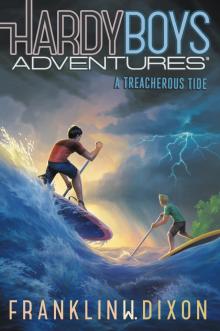 A Treacherous Tide
A Treacherous Tide Bug-Napped
Bug-Napped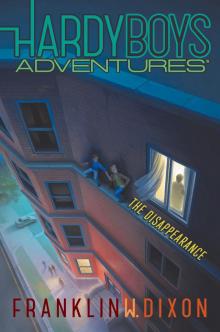 The Disappearance
The Disappearance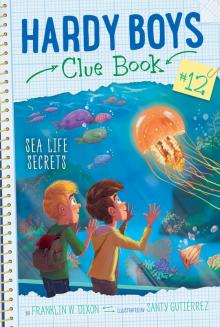 Sea Life Secrets
Sea Life Secrets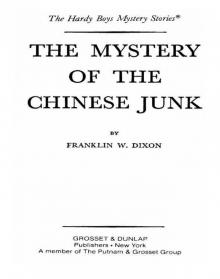 The Mystery of the Chinese Junk
The Mystery of the Chinese Junk A Skateboard Cat-astrophe
A Skateboard Cat-astrophe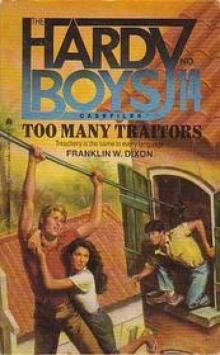 Too Many Traitors
Too Many Traitors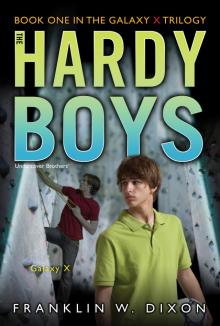 Galaxy X
Galaxy X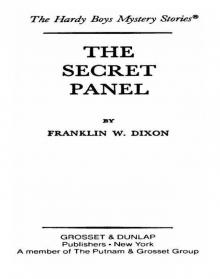 The Secret Panel
The Secret Panel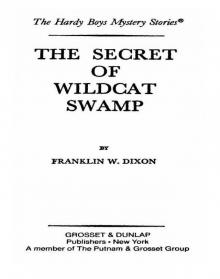 The Secret of Wildcat Swamp
The Secret of Wildcat Swamp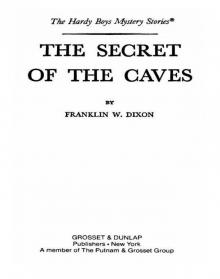 The Secret of the Caves
The Secret of the Caves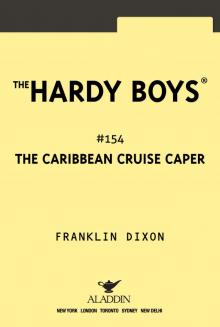 The Caribbean Cruise Caper
The Caribbean Cruise Caper Without a Trace
Without a Trace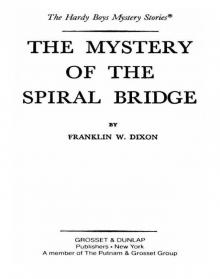 The Mystery of the Spiral Bridge
The Mystery of the Spiral Bridge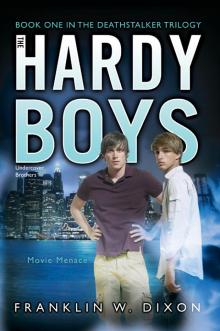 Movie Menace
Movie Menace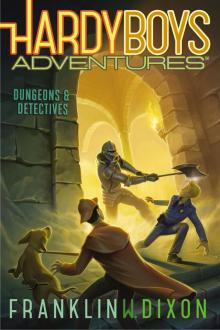 Dungeons & Detectives
Dungeons & Detectives Water-Ski Wipeout
Water-Ski Wipeout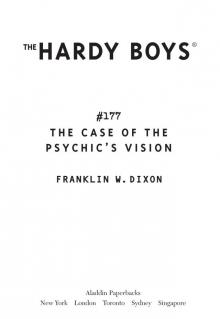 The Case of the Psychic's Vision
The Case of the Psychic's Vision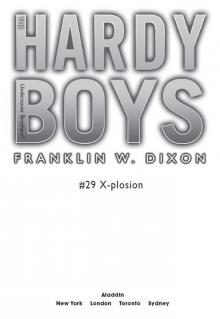 X-plosion
X-plosion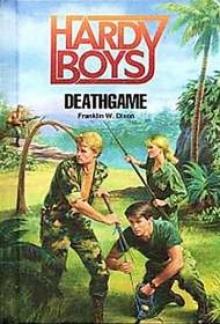 Deathgame
Deathgame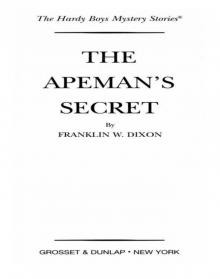 The Apeman's Secret
The Apeman's Secret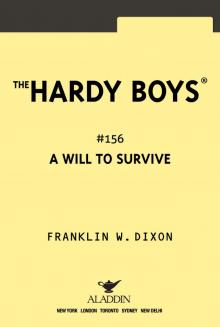 A Will to Survive
A Will to Survive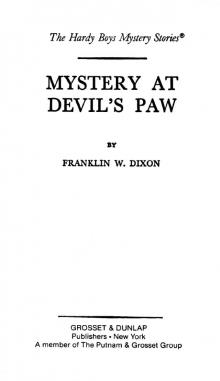 Mystery at Devil's Paw
Mystery at Devil's Paw Blood Money
Blood Money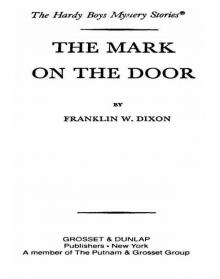 The Mark on the Door
The Mark on the Door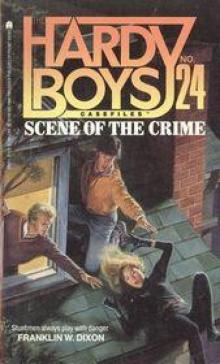 Scene of the Crime
Scene of the Crime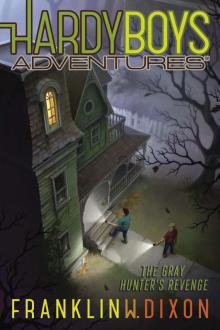 The Gray Hunter's Revenge
The Gray Hunter's Revenge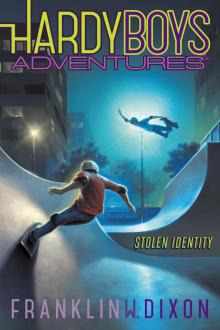 Stolen Identity
Stolen Identity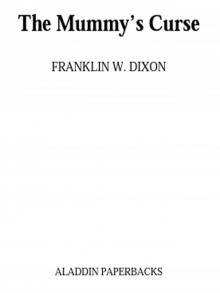 The Mummy's Curse
The Mummy's Curse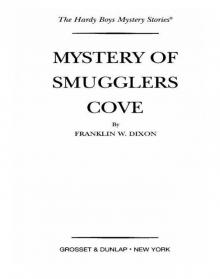 Mystery of Smugglers Cove
Mystery of Smugglers Cove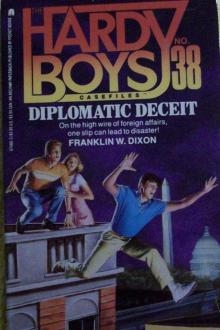 Diplomatic Deceit
Diplomatic Deceit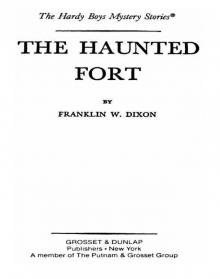 The Haunted Fort
The Haunted Fort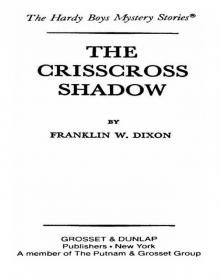 The Crisscross Shadow
The Crisscross Shadow Secret of the Red Arrow
Secret of the Red Arrow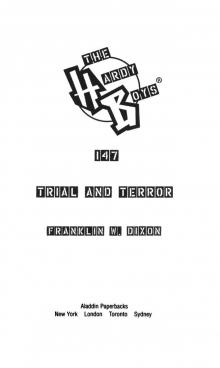 Trial and Terror
Trial and Terror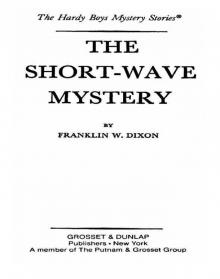 The Short-Wave Mystery
The Short-Wave Mystery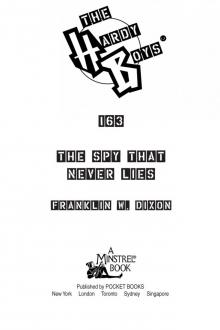 The Spy That Never Lies
The Spy That Never Lies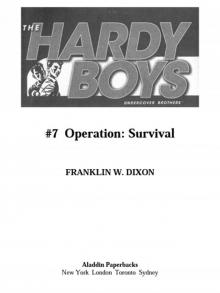 Operation: Survival
Operation: Survival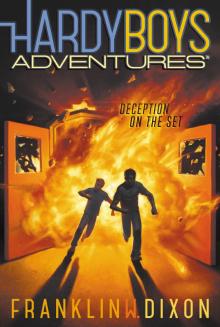 Deception on the Set
Deception on the Set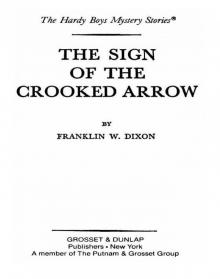 The Sign of the Crooked Arrow
The Sign of the Crooked Arrow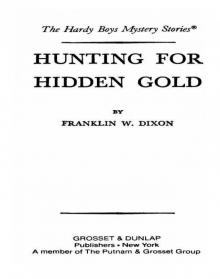 Hunting for Hidden Gold
Hunting for Hidden Gold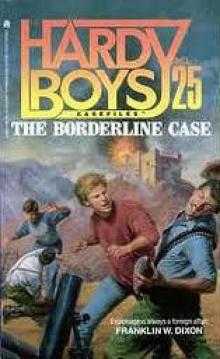 Disaster for Hire
Disaster for Hire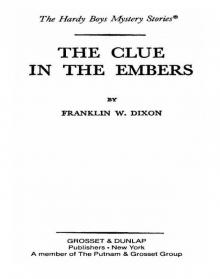 The Clue in the Embers
The Clue in the Embers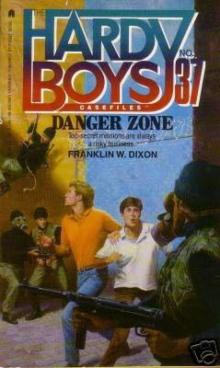 Danger Zone
Danger Zone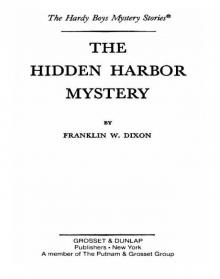 The Hidden Harbor Mystery
The Hidden Harbor Mystery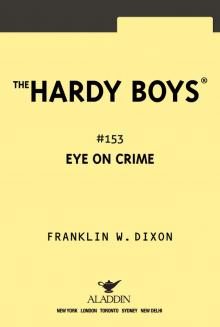 Eye on Crime
Eye on Crime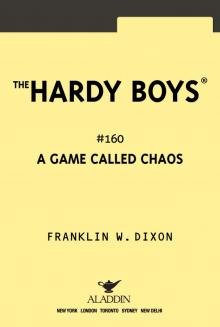 A Game Called Chaos
A Game Called Chaos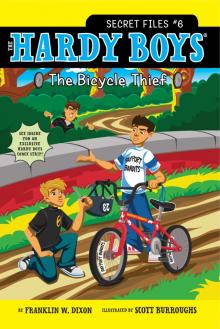 The Bicycle Thief
The Bicycle Thief The Missing Playbook
The Missing Playbook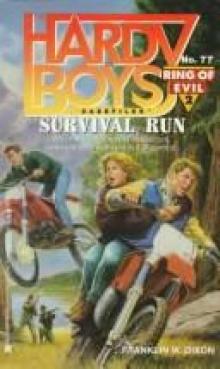 Survival Run
Survival Run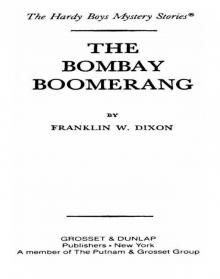 The Bombay Boomerang
The Bombay Boomerang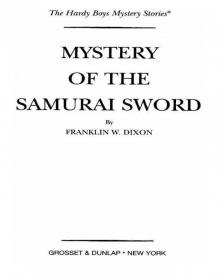 Mystery of the Samurai Sword
Mystery of the Samurai Sword Burned
Burned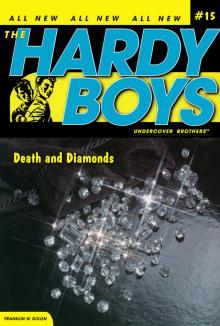 Death and Diamonds
Death and Diamonds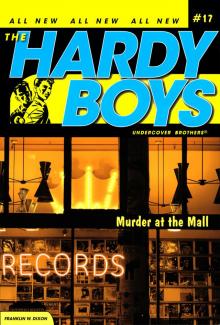 Murder at the Mall
Murder at the Mall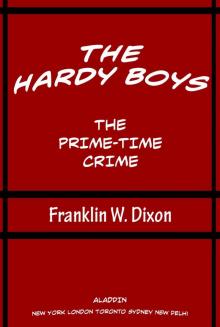 The Prime-Time Crime
The Prime-Time Crime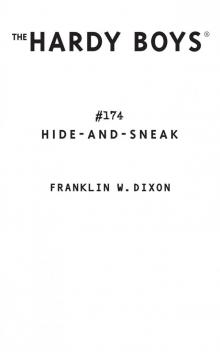 Hide-and-Sneak
Hide-and-Sneak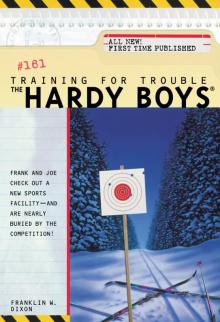 Training for Trouble
Training for Trouble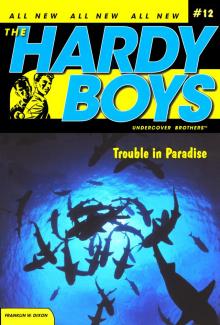 Trouble in Paradise
Trouble in Paradise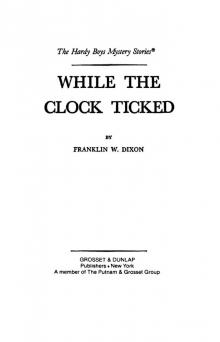 While the Clock Ticked
While the Clock Ticked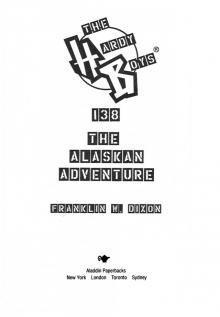 The Alaskan Adventure
The Alaskan Adventure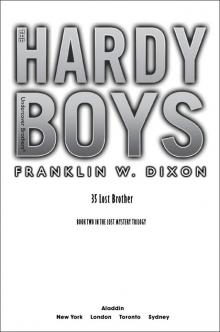 The Lost Brother
The Lost Brother Tunnel of Secrets
Tunnel of Secrets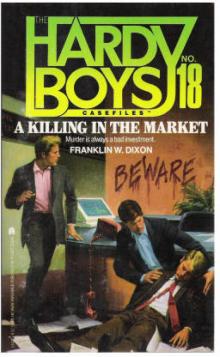 A Killing in the Market
A Killing in the Market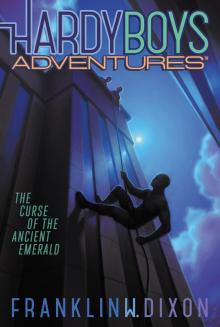 The Curse of the Ancient Emerald
The Curse of the Ancient Emerald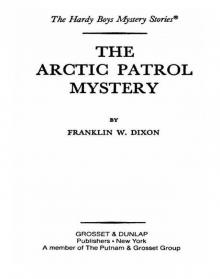 The Arctic Patrol Mystery
The Arctic Patrol Mystery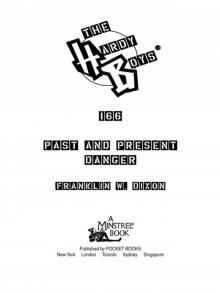 Past and Present Danger
Past and Present Danger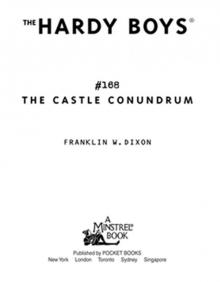 The Castle Conundrum (Hardy Boys)
The Castle Conundrum (Hardy Boys)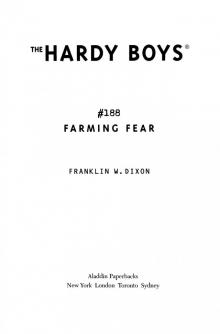 Farming Fear
Farming Fear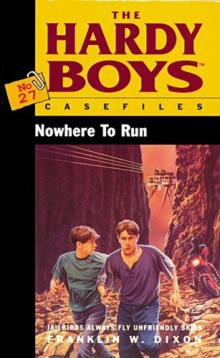 Nowhere to Run
Nowhere to Run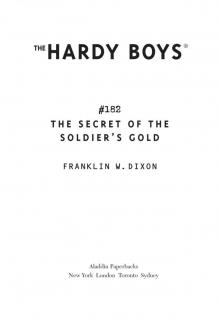 The Secret of the Soldier's Gold
The Secret of the Soldier's Gold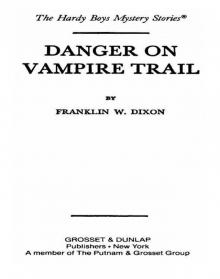 Danger on Vampire Trail
Danger on Vampire Trail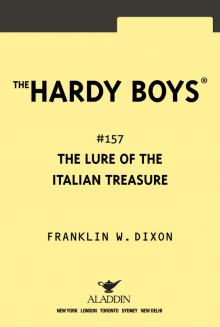 The Lure of the Italian Treasure
The Lure of the Italian Treasure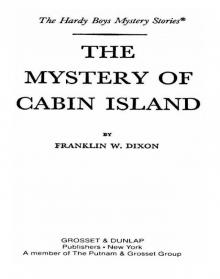 The Mystery of Cabin Island
The Mystery of Cabin Island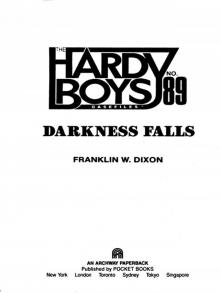 Darkness Falls
Darkness Falls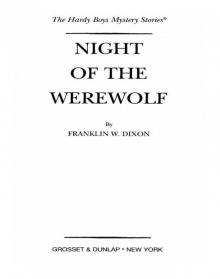 Night of the Werewolf
Night of the Werewolf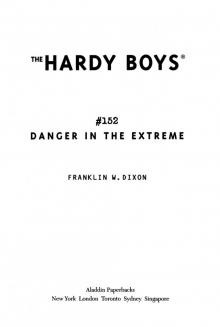 Danger in the Extreme
Danger in the Extreme The Lazarus Plot
The Lazarus Plot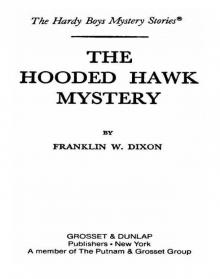 The Hooded Hawk Mystery
The Hooded Hawk Mystery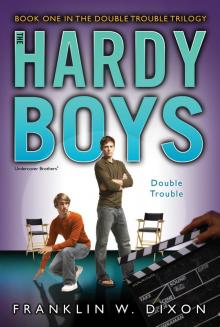 Double Trouble
Double Trouble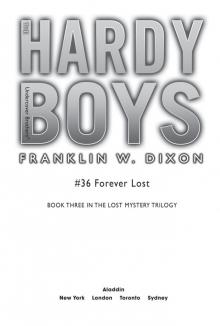 Forever Lost
Forever Lost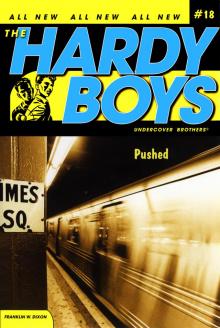 Pushed
Pushed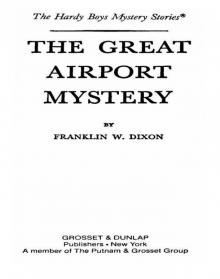 The Great Airport Mystery
The Great Airport Mystery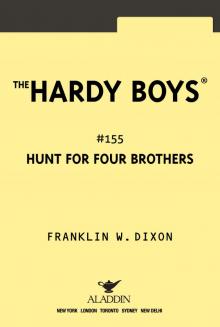 The Hunt for Four Brothers
The Hunt for Four Brothers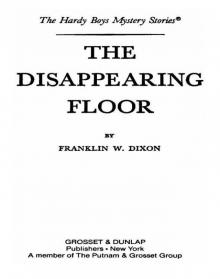 The Disappearing Floor
The Disappearing Floor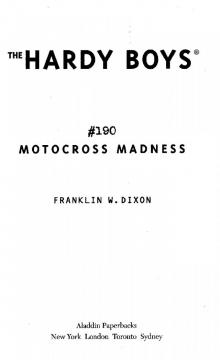 Motocross Madness
Motocross Madness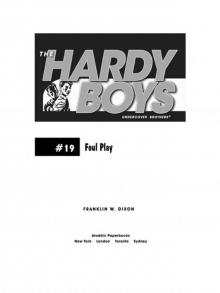 Foul Play
Foul Play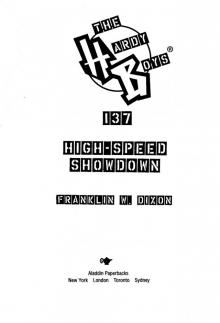 High-Speed Showdown
High-Speed Showdown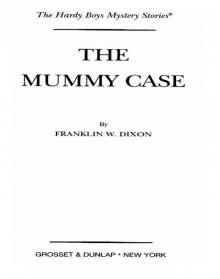 The Mummy Case
The Mummy Case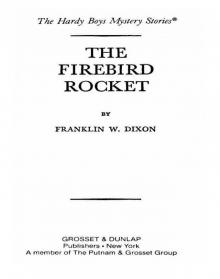 The Firebird Rocket
The Firebird Rocket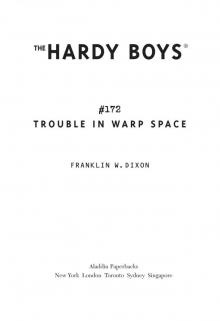 Trouble in Warp Space
Trouble in Warp Space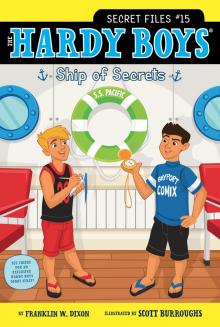 Ship of Secrets
Ship of Secrets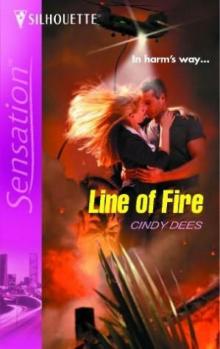 Line of Fire
Line of Fire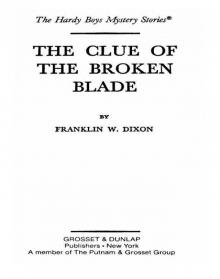 The Clue of the Broken Blade
The Clue of the Broken Blade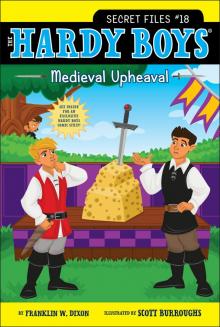 Medieval Upheaval
Medieval Upheaval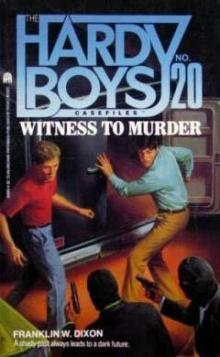 Witness to Murder
Witness to Murder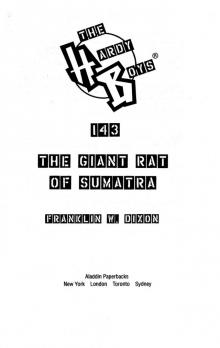 The Giant Rat of Sumatra
The Giant Rat of Sumatra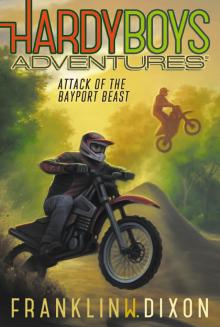 Attack of the Bayport Beast
Attack of the Bayport Beast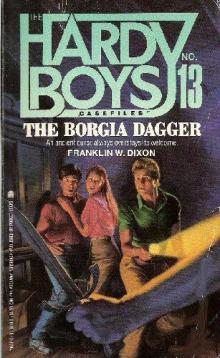 The Borgia Dagger
The Borgia Dagger Scavenger Hunt Heist
Scavenger Hunt Heist No Way Out
No Way Out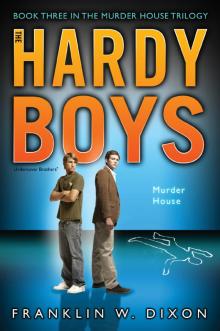 Murder House
Murder House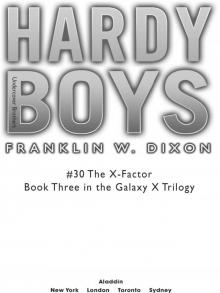 The X-Factor
The X-Factor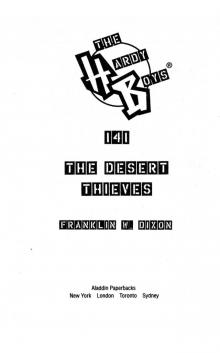 The Desert Thieves
The Desert Thieves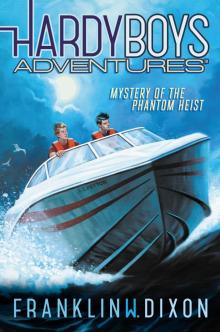 Mystery of the Phantom Heist
Mystery of the Phantom Heist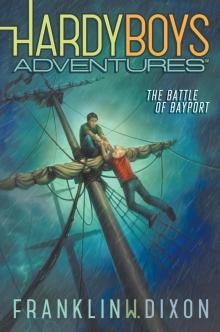 The Battle of Bayport
The Battle of Bayport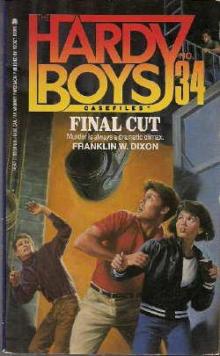 Final Cut
Final Cut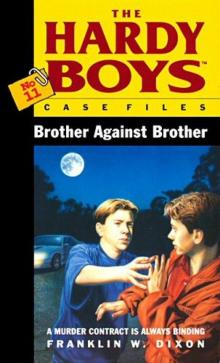 Brother Against Brother
Brother Against Brother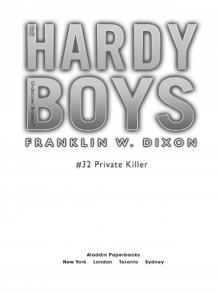 Private Killer
Private Killer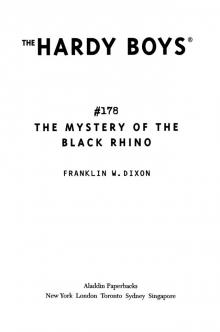 The Mystery of the Black Rhino
The Mystery of the Black Rhino Feeding Frenzy
Feeding Frenzy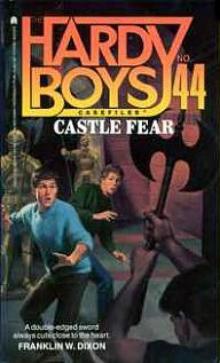 Castle Fear
Castle Fear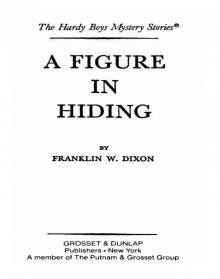 A Figure in Hiding
A Figure in Hiding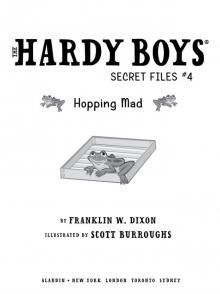 Hopping Mad
Hopping Mad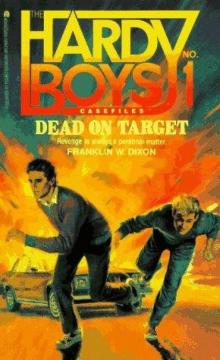 Dead on Target
Dead on Target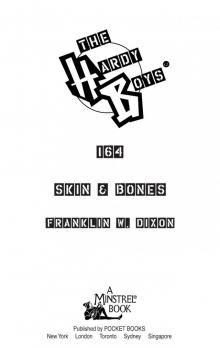 Skin and Bones
Skin and Bones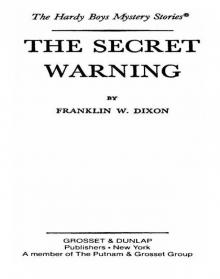 The Secret Warning
The Secret Warning Flesh and Blood
Flesh and Blood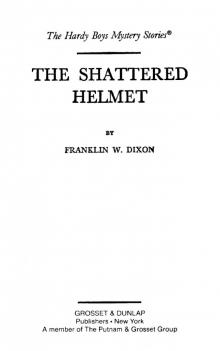 The Shattered Helmet
The Shattered Helmet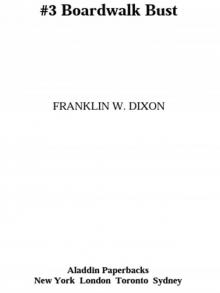 Boardwalk Bust
Boardwalk Bust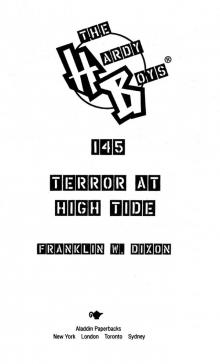 Terror at High Tide
Terror at High Tide In Plane Sight
In Plane Sight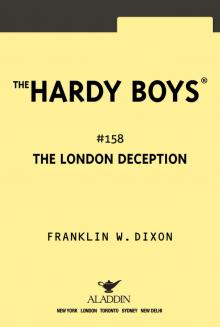 The London Deception
The London Deception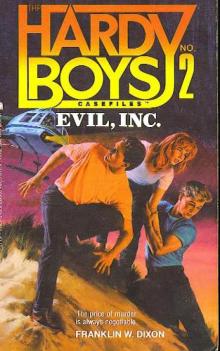 Evil, Inc.
Evil, Inc.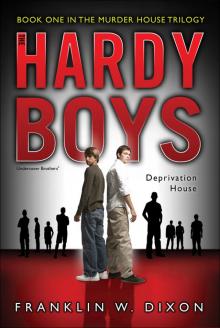 Deprivation House
Deprivation House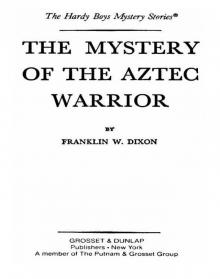 The Mystery of the Aztec Warrior
The Mystery of the Aztec Warrior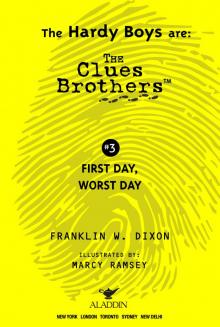 First Day, Worst Day
First Day, Worst Day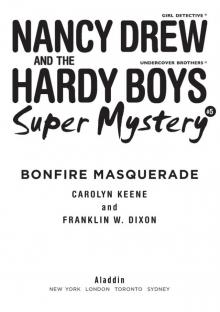 Bonfire Masquerade
Bonfire Masquerade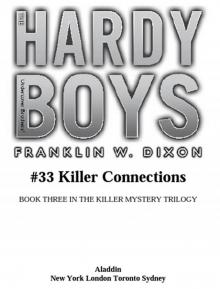 Killer Connections
Killer Connections Strategic Moves
Strategic Moves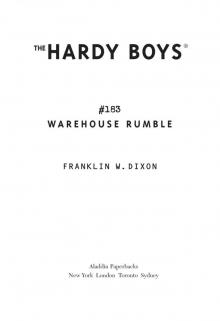 Warehouse Rumble
Warehouse Rumble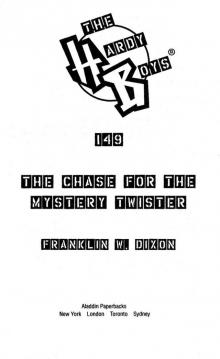 The Chase for the Mystery Twister
The Chase for the Mystery Twister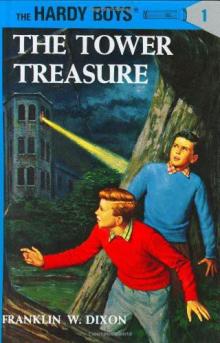 The Tower Treasure thb-1
The Tower Treasure thb-1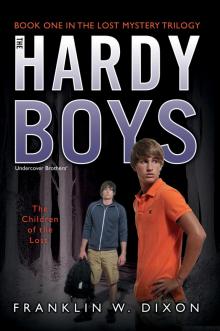 The Children of the Lost
The Children of the Lost The Last Laugh
The Last Laugh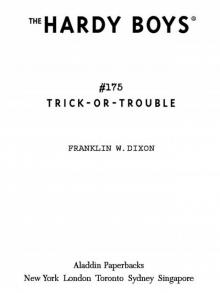 Trick-or-Trouble
Trick-or-Trouble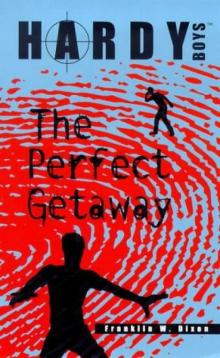 Perfect Getaway
Perfect Getaway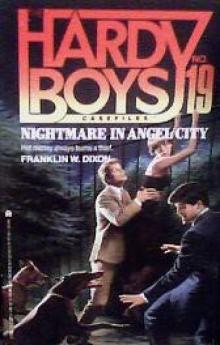 Nightmare in Angel City
Nightmare in Angel City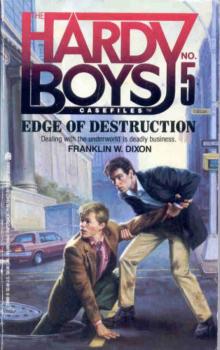 Edge of Destruction
Edge of Destruction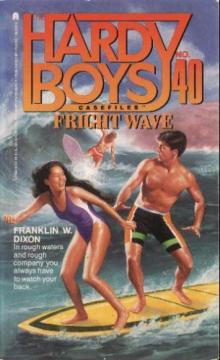 Fright Wave
Fright Wave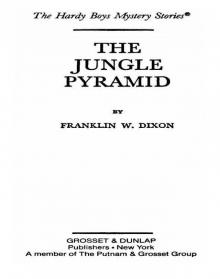 The Jungle Pyramid
The Jungle Pyramid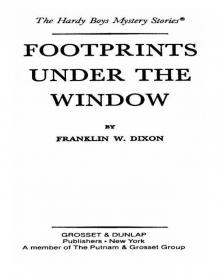 Footprints Under the Window
Footprints Under the Window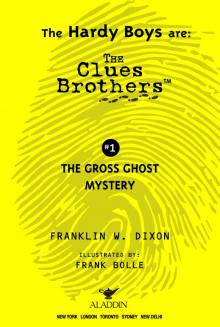 The Gross Ghost Mystery
The Gross Ghost Mystery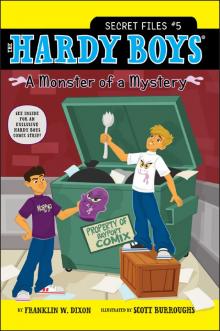 A Monster of a Mystery
A Monster of a Mystery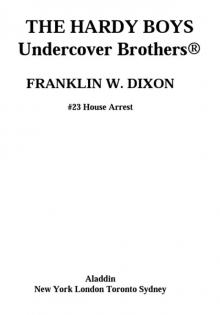 House Arrest
House Arrest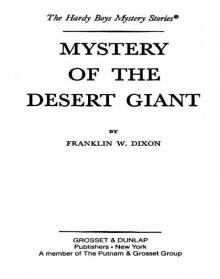 Mystery of the Desert Giant
Mystery of the Desert Giant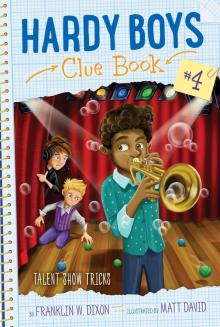 Talent Show Tricks
Talent Show Tricks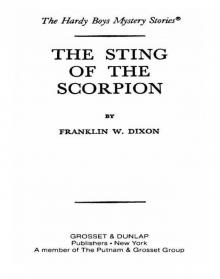 The Sting of the Scorpion
The Sting of the Scorpion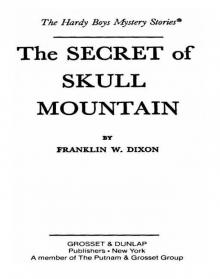 The Secret of Skull Mountain
The Secret of Skull Mountain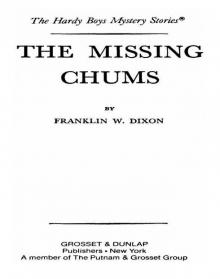 The Missing Chums
The Missing Chums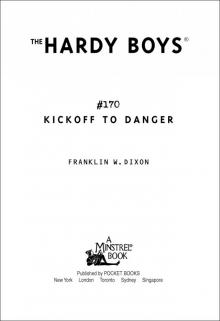 Kickoff to Danger
Kickoff to Danger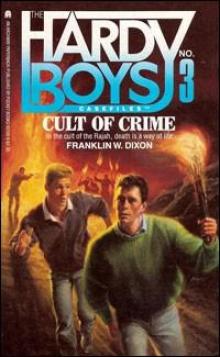 Cult of Crime
Cult of Crime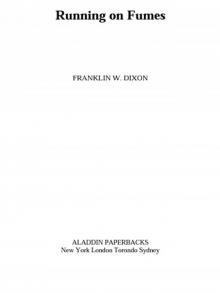 Running on Fumes
Running on Fumes Martial Law
Martial Law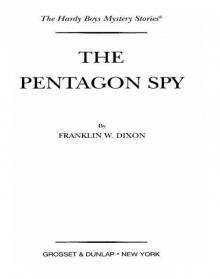 The Pentagon Spy
The Pentagon Spy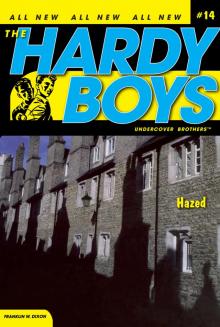 Hazed
Hazed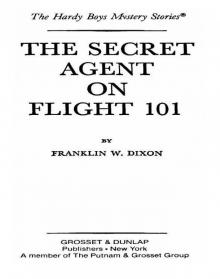 The Secret Agent on Flight 101
The Secret Agent on Flight 101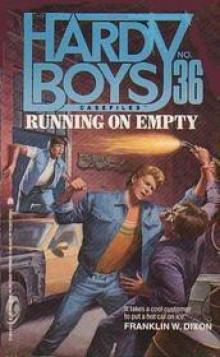 Running on Empty
Running on Empty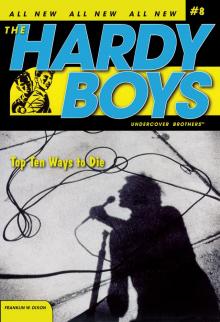 Top Ten Ways to Die
Top Ten Ways to Die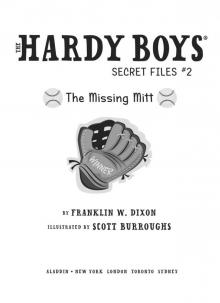 The Missing Mitt
The Missing Mitt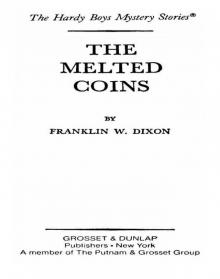 The Melted Coins
The Melted Coins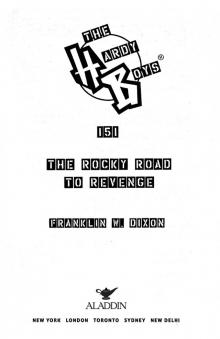 The Rocky Road to Revenge
The Rocky Road to Revenge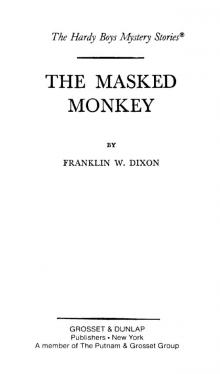 The Masked Monkey
The Masked Monkey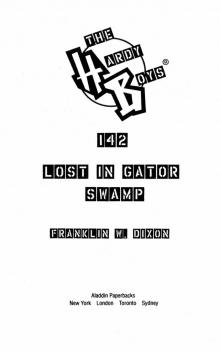 Lost in Gator Swamp
Lost in Gator Swamp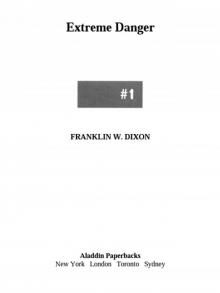 Extreme Danger
Extreme Danger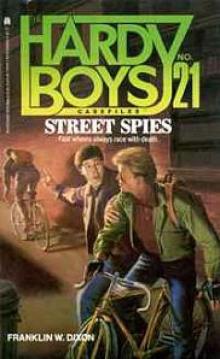 Street Spies
Street Spies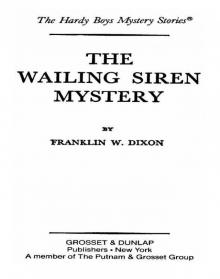 The Wailing Siren Mystery
The Wailing Siren Mystery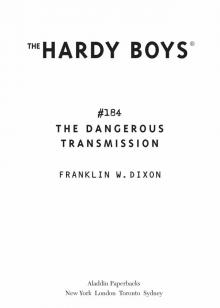 The Dangerous Transmission
The Dangerous Transmission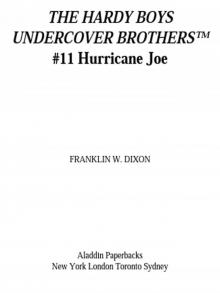 Hurricane Joe
Hurricane Joe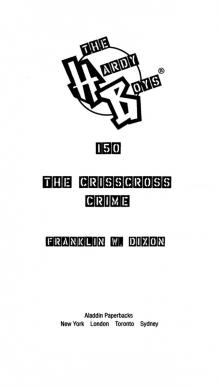 The Crisscross Crime
The Crisscross Crime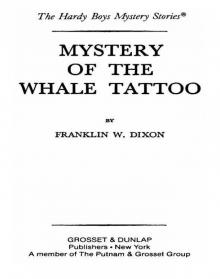 Mystery of the Whale Tattoo
Mystery of the Whale Tattoo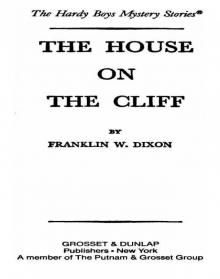 The House on the Cliff
The House on the Cliff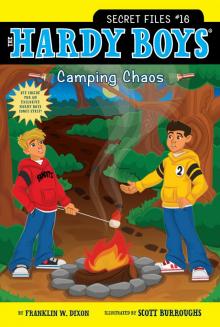 Camping Chaos
Camping Chaos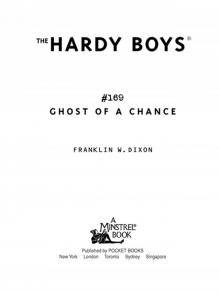 Ghost of a Chance
Ghost of a Chance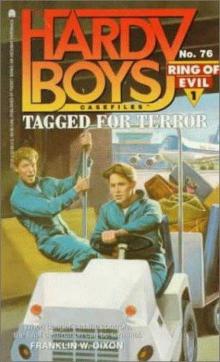 Tagged for Terror
Tagged for Terror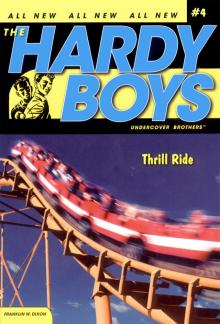 Thrill Ride
Thrill Ride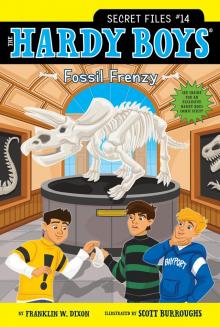 Fossil Frenzy
Fossil Frenzy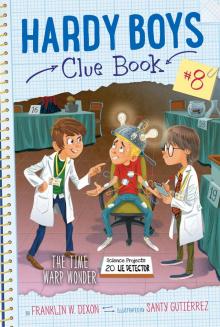 The Time Warp Wonder
The Time Warp Wonder Ghost Stories
Ghost Stories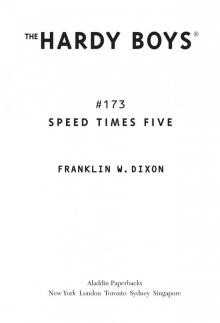 Speed Times Five
Speed Times Five What Happened at Midnight
What Happened at Midnight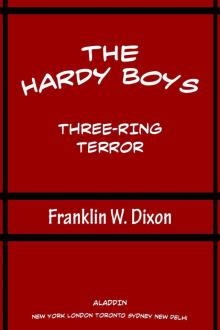 Three-Ring Terror
Three-Ring Terror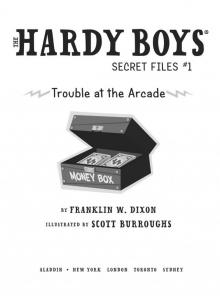 Trouble at the Arcade
Trouble at the Arcade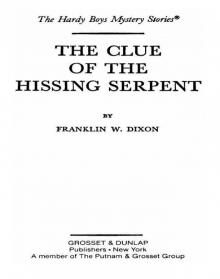 The Clue of the Hissing Serpent
The Clue of the Hissing Serpent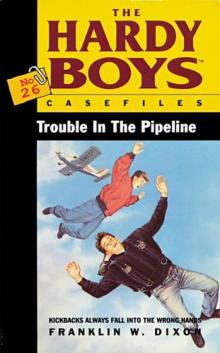 Trouble in the Pipeline
Trouble in the Pipeline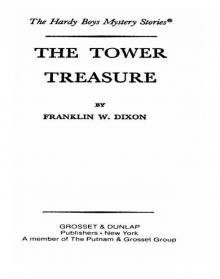 The Tower Treasure
The Tower Treasure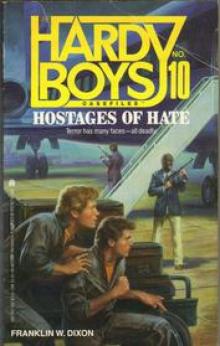 Hostages of Hate
Hostages of Hate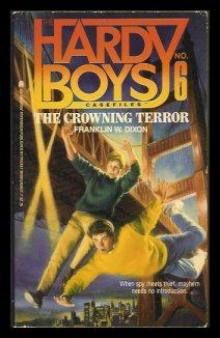 The Crowning Terror
The Crowning Terror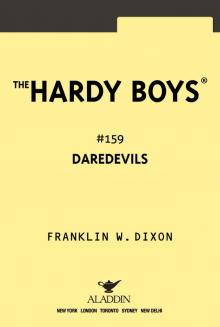 Daredevils
Daredevils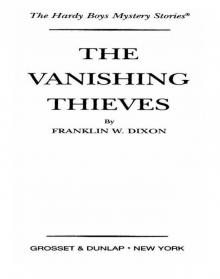 The Vanishing Thieves
The Vanishing Thieves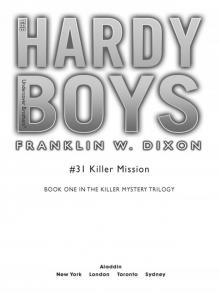 Killer Mission
Killer Mission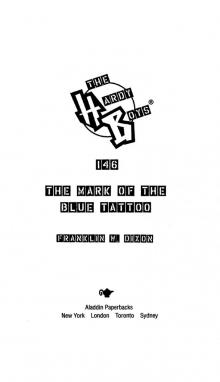 The Mark of the Blue Tattoo
The Mark of the Blue Tattoo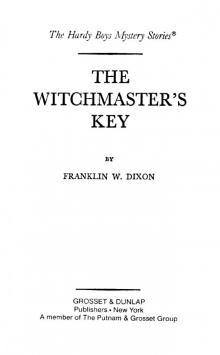 The Witchmaster's Key
The Witchmaster's Key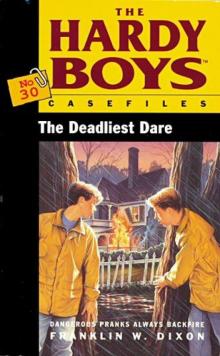 The Deadliest Dare
The Deadliest Dare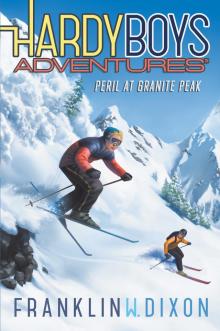 Peril at Granite Peak
Peril at Granite Peak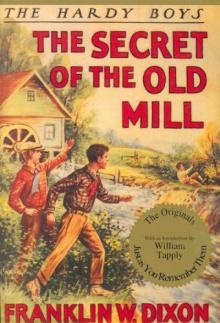 The Secret Of The Old Mill thb-3
The Secret Of The Old Mill thb-3 Rocky Road
Rocky Road The Demolition Mission
The Demolition Mission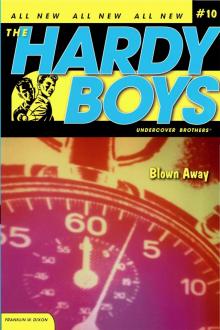 Blown Away
Blown Away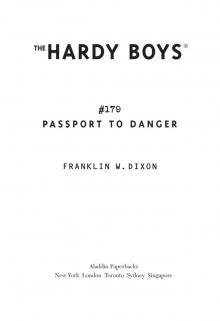 Passport to Danger
Passport to Danger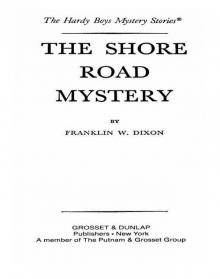 The Shore Road Mystery
The Shore Road Mystery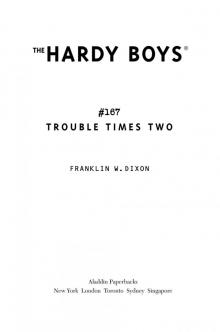 Trouble Times Two
Trouble Times Two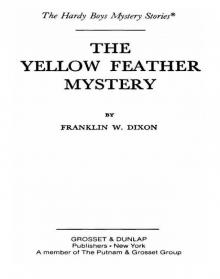 The Yellow Feather Mystery
The Yellow Feather Mystery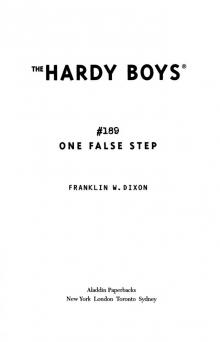 One False Step
One False Step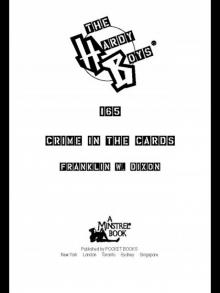 Crime in the Cards
Crime in the Cards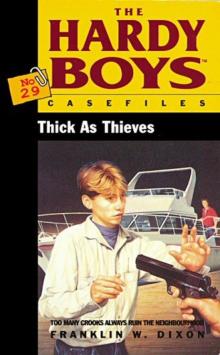 Thick as Thieves
Thick as Thieves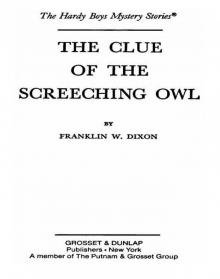 The Clue of the Screeching Owl
The Clue of the Screeching Owl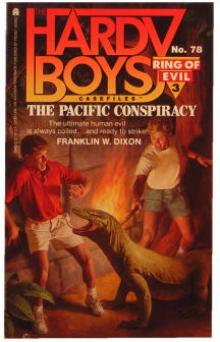 The Pacific Conspiracy
The Pacific Conspiracy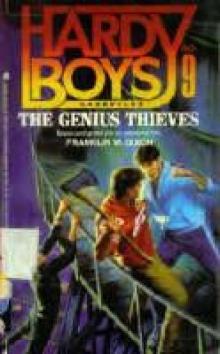 The Genius Thieves
The Genius Thieves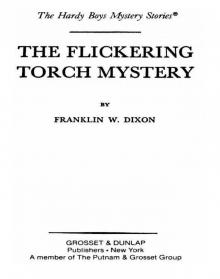 The Flickering Torch Mystery
The Flickering Torch Mystery Into Thin Air
Into Thin Air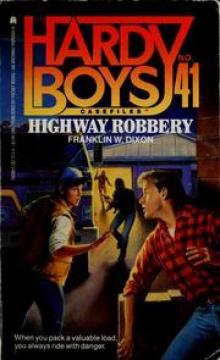 Highway Robbery
Highway Robbery Deadfall
Deadfall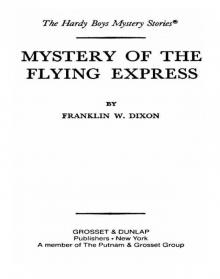 Mystery of the Flying Express
Mystery of the Flying Express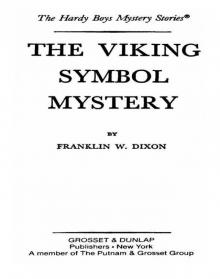 The Viking Symbol Mystery
The Viking Symbol Mystery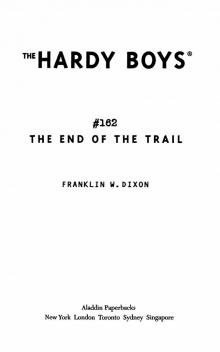 The End of the Trail
The End of the Trail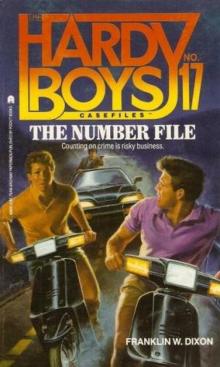 The Number File
The Number File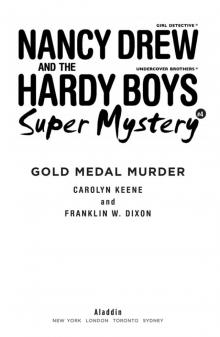 Gold Medal Murder
Gold Medal Murder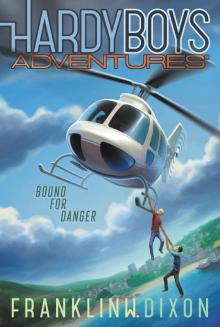 Bound for Danger
Bound for Danger Collision Course
Collision Course The Madman of Black Bear Mountain
The Madman of Black Bear Mountain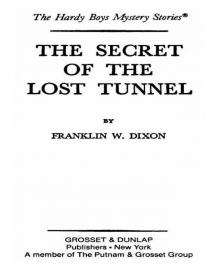 The Secret of the Lost Tunnel
The Secret of the Lost Tunnel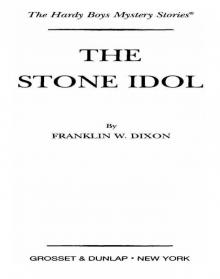 The Stone Idol
The Stone Idol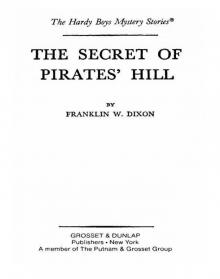 The Secret of Pirates' Hill
The Secret of Pirates' Hill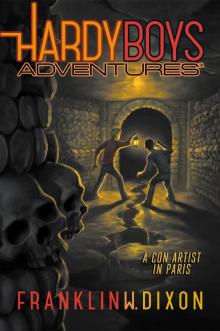 A Con Artist in Paris
A Con Artist in Paris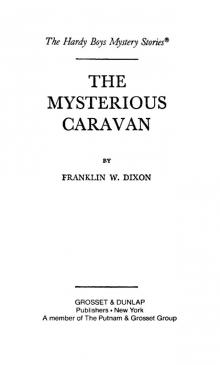 The Mysterious Caravan
The Mysterious Caravan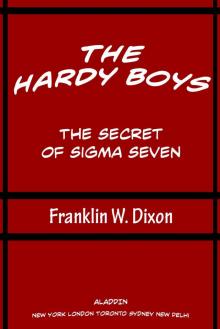 The Secret of Sigma Seven
The Secret of Sigma Seven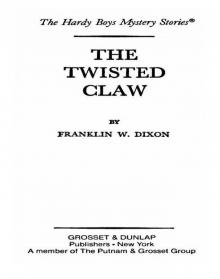 The Twisted Claw
The Twisted Claw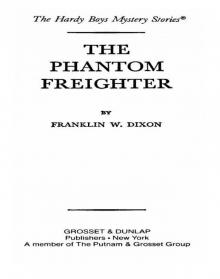 The Phantom Freighter
The Phantom Freighter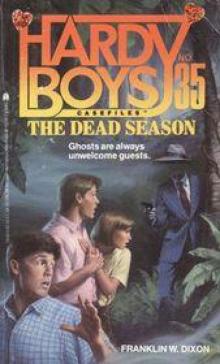 The Dead Season
The Dead Season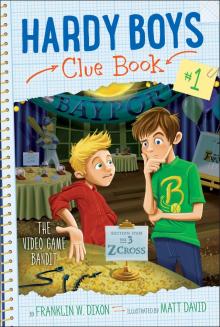 The Video Game Bandit
The Video Game Bandit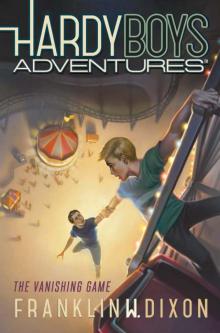 The Vanishing Game
The Vanishing Game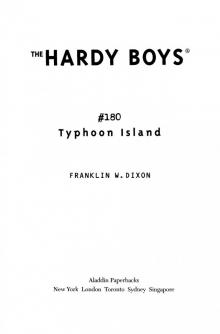 Typhoon Island
Typhoon Island